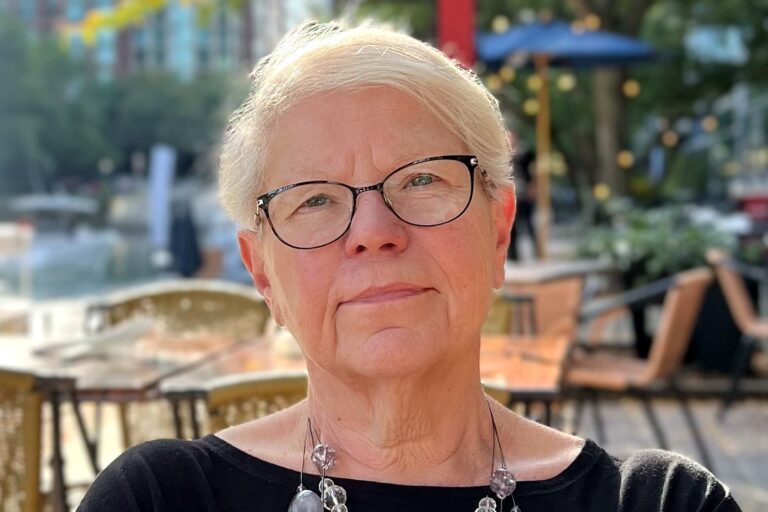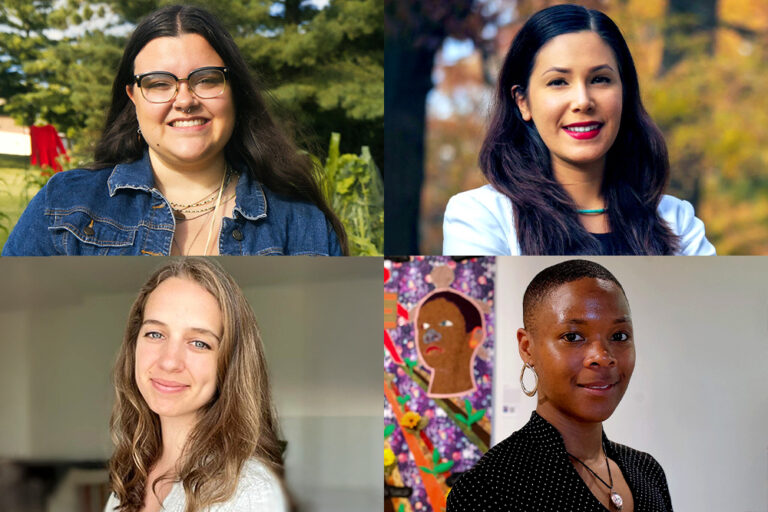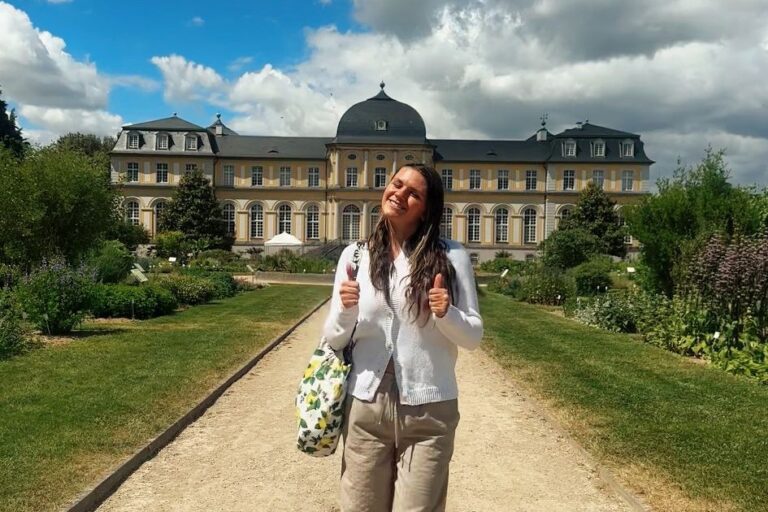Lynn Wolff’s decision to study German in middle school was purely pragmatic. Most kids her age took Spanish. She wanted to be different. Plus, it simply made sense to learn German when she lived in Wisconsin — a state where nearly 45 percent of the population claim German ancestry. Ultimately, learning German opened her eyes to the world beyond the borders of Wisconsin and set her on an international path.
For Wolff, studying literature through the lens of a second language became a passion that influenced her choices for college and career. Today, she strives to pique curiosity and broaden opportunities for students as an Associate Professor of German in MSU’s Department of Linguistics and Germanic, Slavic, Asian, and African Languages in the College of Arts & Letters.
“It was incredibly valuable to gain insights from the other fellows about university structures as well as to compare approaches to teaching based on practical or theoretical applications — particularly across disciplines.”
Wolff’s desire to teach and to do it well threads throughout her quest to work and participate in a lifetime of learning. Just recently, she devoted a full academic year to refining her teaching and leadership abilities as a participant in the Lilly Teaching Fellowship program. As a 2019-20 fellow, Wolff joined a cohort of 16 MSU faculty and academic specialists to engage in collaborative, cross-disciplinary work as Lilly or Adams Academy Fellows.
Designed to inspire excellence in teaching and leadership, the Lilly program pairs participants with experienced faculty mentors to produce a personal research project. Wolff was mentored by Karrin Hanshew, a historian of modern Germany in MSU’s College of Social Science.
“I was thrilled to be accepted and to have the flexibility and support to pursue a project related to my new administrative role as Director of Graduate Studies,” Wolff said. “It was incredibly valuable to gain insights from the other fellows about university structures as well as to compare approaches to teaching based on practical or theoretical applications — particularly across disciplines.”
More Than the Germane
Wolff joined the MSU faculty in 2014 with a background of studying, teaching, and doing research abroad. Her interests encompass modern German literature and culture, in particular the relationship between literature and historiography, the representation of the Holocaust, theories of translation, practices of intermediality, and world literature. Teaming up with colleagues in German, French and Francophone, and Japanese studies, Wolff helped initiate the Graphic Narratives Network, a research collaborative focused on writing history and visualizing trauma in text-image form.
“I’m deeply committed to the humanities and to humanitarian modes of inquiry, and every semester I see the power of literary texts to help students become critical readers and thinkers,” Wolff said. “I am also aware of the many pressures on our students, so it’s important to show why studying language and culture matters.” With this in mind, Wolff wants to ensure her students make connections and discover effective pathways to advance their studies and careers.
“Part of what I emphasize in my teaching is the difference between information and knowledge. I strive to show students that information only becomes knowledge when you can put it into context, make connections, and communicate it to other people.”
The Lilly Fellowship offered Wolff an opportunity to strengthen her teaching and to focus on collaborative efforts both within her department and across colleges. Part of her year-long fellowship project, she said, involved examining MSU’s master’s and Ph.D. programs in German and finding a good balance between disciplinary expertise and applicability to careers, research, or advanced studies. Her two-pronged project also involved analyzing MSU’s German program in general to ensure continuity.
“Part of what I emphasize in my teaching is the difference between information and knowledge,” she said. “I strive to show students that information only becomes knowledge when you can put it into context, make connections, and communicate it to other people.”
Wolff said the Lilly Fellowship gave her the time and support she needed to further explore and develop graduate learning goals that were on par and parallel with those at the undergraduate level. Her hoped for outcome, she said, is a framework that enables continued refinement of graduate education, learning goals, and curriculum, as well as an ongoing means for evaluating graduate pedagogy.
“One of my biggest takeaways from the past year was the need to make teaching evaluations more qualitative,” she said. “It’s something we should make time for so we can continue to focus on how we design teaching and learning objectives that have the best effect on our students.”


